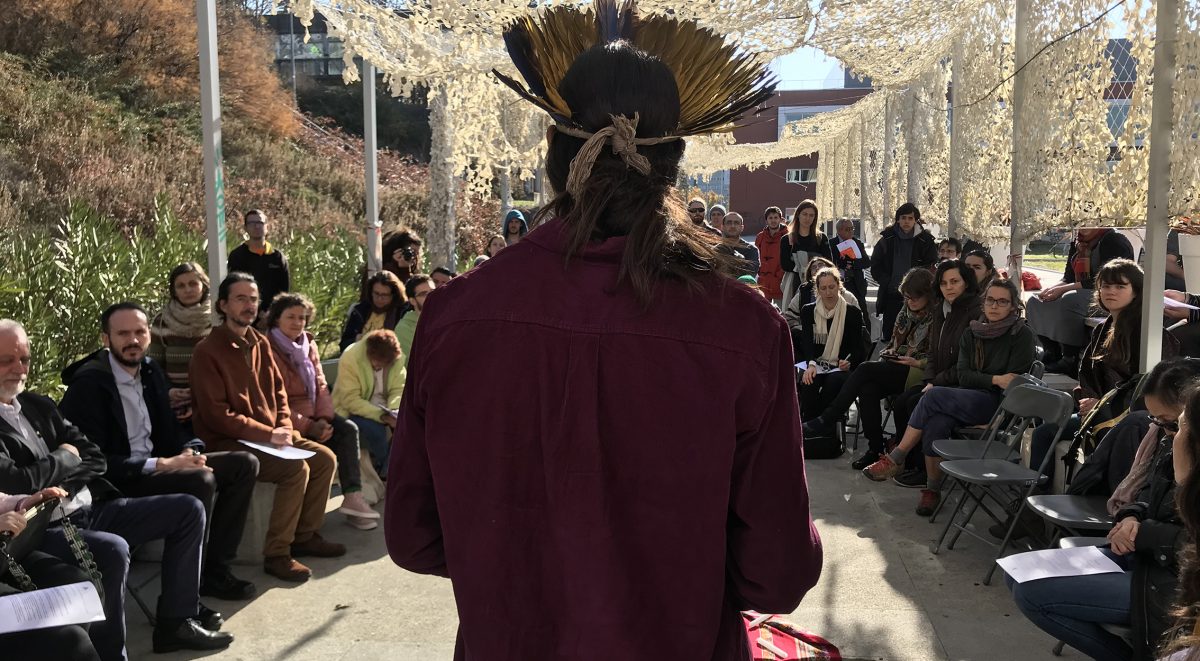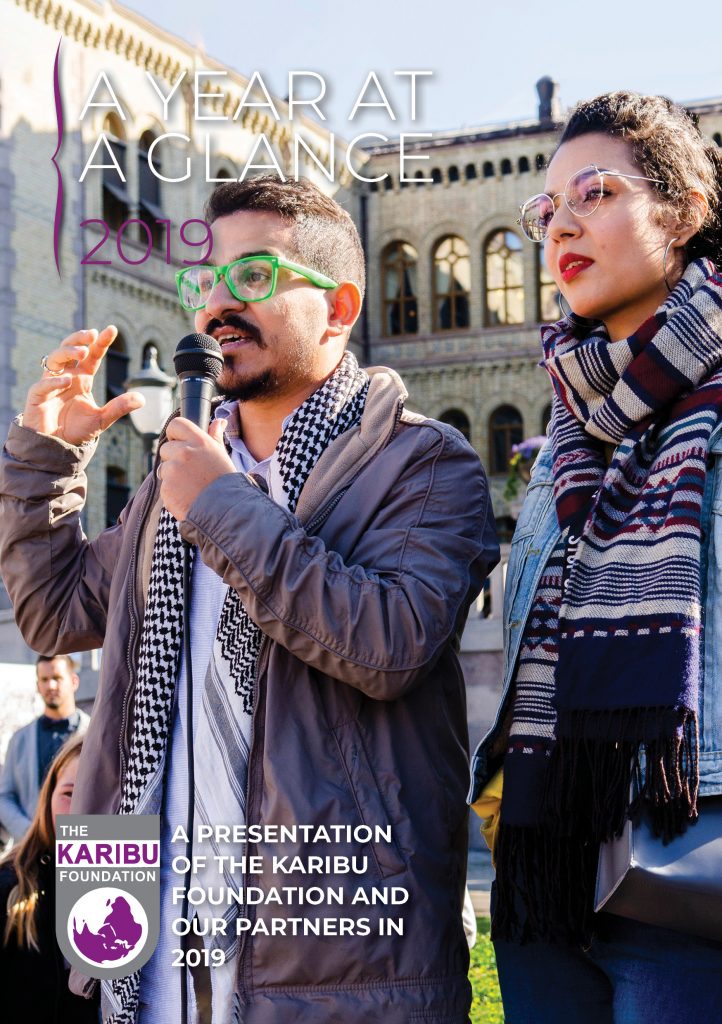
Photo credit: WSCF LAC (COP 25)
This text can be found as the word from the Karibu secretariat, featured in “A Year at Glance 2019“.
We are living in a dramatic and brutal time in history for social movements around the world. As activists, CSOs, and social movements raise their voices with political analysis and claims against the positions of ruling powers, they are met with increased control, ‘security’ measures, surveillance, marginalisation, accusations, state violence, and even direct punitive action taken against them. Under cover of new legal instruments like anti-terrorism and anti-money laundering legislation, various regimes introduce strict limitations and even persecution against social movements that challenge injustice and human rights violations. There is increased political control against those promoting alternative political agendas and governance models. The space for alternative voices is shrinking.

In our own partner network, human rights defenders are put in detention and under tough interrogation because they provide logistical support and promote non-violent strategies to youth in demonstrations. Social movements who attract international attention for exposing illegalities of their governments have seen their bank accounts frozen, and transfer of international funding to their activities blocked. Legitimate, non-violent organisations are put on governments’ blacklists and are accused of supporting communist rebels and terrorism. And prominent peoples’ organisations, with track records of excellence in confronting unjust global systems, are excluded from civil society arenas at intergovernmental conferences because their voices are challenging the systemic injustice. Even in traditional liberal and open democracies, we see increased political surveillance of funding institutions through screening of receiving partners in the global South.
What will be the reality for broad political mobilisation, human rights protection, and promotion of alternative systemic analysis, in the decade to come? Will we continue to see political and economic elites, as well as ideological ruling powers (promoting exclusivity or ethnocracy), violently protecting the status quo and the privileges of the few against the rights of all people? Have we only seen the initial stages of how control of data and communication will increase the digital surveillance of political opposition, human rights defenders and resistance movements?
A major challenge for the coming ten years, given to us by the Intergovernmental Panel on Climate Change, is for a systemic, holistic change in order to limit the destruction of life conditions caused by climate change. To find sustainable solutions for all humanity to the major challenges of our time will require fundamental systemic transformation which will have to incorporate changes in food sovereignty, militarisation, mobility and migration, trans-national corporate power, resource extraction policies, people’s governance, and much more.
Fundamentally, our global neo-liberal capitalist system has not only proven its inability to solve crisis, but also demonstrated clearly that it has created the crisis and continues to deepen them. As more and more people challenge this system and promote a fundamental change, the defenders of the system introduce new measures and instruments to protect privileges, exclusiveness, superiority, increased wealth accumulation for the few.
Do these incidents and trends of the last decade signal an easier time for social movements around going ahead? Likely not.
Yet, in the middle of this all this, we still see strong signs of alternatives. People are mobilising in the thousands for making actual change, taking to the streets and squares week after week. In youth actions of civil resistance, be it on climate change, on greedy extractive industries, on life-risking migration routes for claiming the right to survival, we see the sparks of hope. You can read more about this in this year’s edition of “A Year at Glance” (page 11-13).
At the turn of the year, and as we move into the next decade, it is important for us to highlight the brutal reality that many of our partners experience on a daily basis. We acknowledge the struggle of so many of our partners, stand in solidarity with those who pay high cost for their daily work for rights, justice and dignity, and also express our commitment to be accompaniers of peoples’ mobilisation for a just system change in the coming times.
May justice, peace, equality and dignity have more space and become a reality for more people in 2020.
